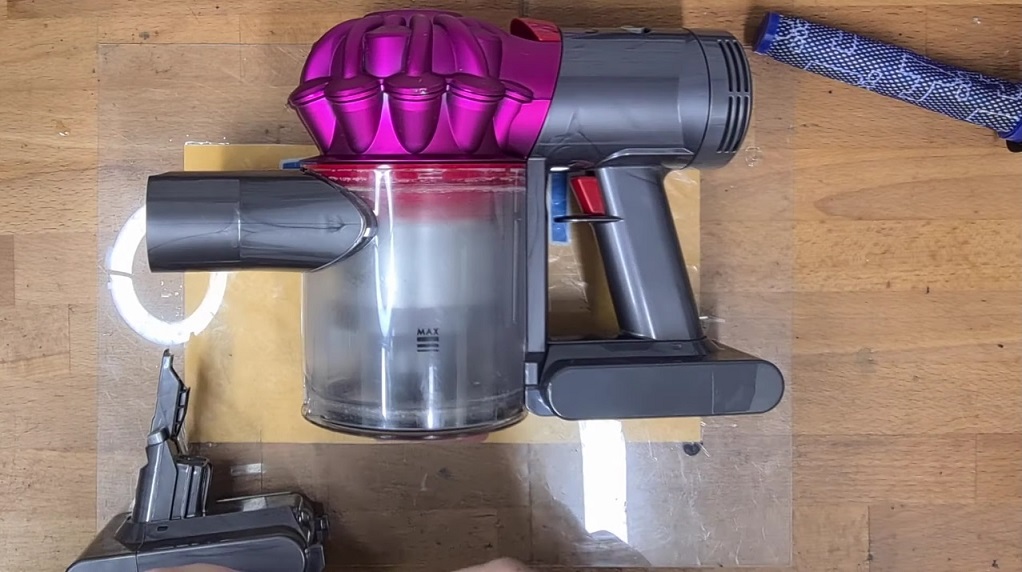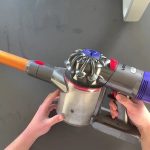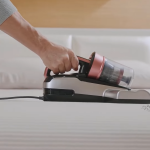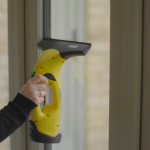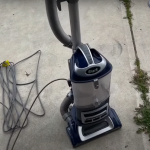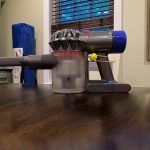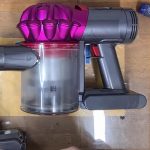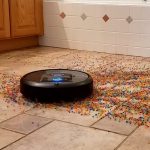Dyson is renowned for its inventive and potent vacuum cleaners, fundamentally altering home cleaning. A defining aspect that sets Dyson stick vacuum apart is their cordless design, enabled by cutting-edge lithium-ion batteries.
The duration of a Dyson battery’s effectiveness can fluctuate based on the model and usage habits. Earlier Dyson cordless vacuums, like the Dyson V6 and Dyson V8, typically sustained a battery life of about 20 to 40 minutes, contingent on the cleaning mode and attachments employed.
The Dyson V10 and Dyson V11 models exhibited enhancements, delivering up to 60 minutes of runtime. The Dyson V15 Detect also provides a runtime of up to 60 minutes, akin to the Dyson V10 and V11 models.
It’s crucial to recognize that runtime might lessen over time due to battery capacity and wear deterioration. Daily use, elevated suction power settings, and recurrent thorough cleaning sessions all contribute to the overall lifespan of the battery. Still, many users often inquire: What is the typical lifespan of a Dyson battery?
In this piece, we will delve into the lifespan of Dyson vacuum batteries, the factors influencing their longevity, and strategies to optimize their performance.
Understanding Dyson Battery Technology:
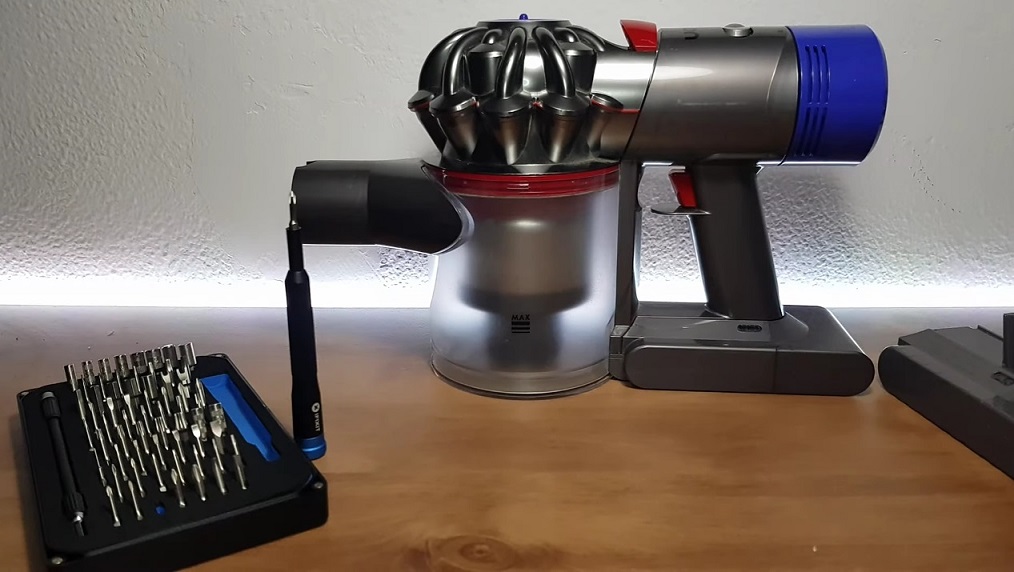
Dyson’s mastery of cutting-edge battery technology has been a cornerstone of their revolutionary cordless vacuum cleaner design. By seamlessly integrating advanced lithium-ion batteries, Dyson has redefined the way we approach home cleaning, offering unparalleled convenience and efficiency.
Lithium-ion batteries, the driving force behind Dyson cordless vacuum, represent a pinnacle in modern battery innovation. These batteries are renowned for their exceptional energy density, low self-discharge rates, and absence of memory effect. Such attributes have positioned them as a favored choice for powering portable electronics, exemplified by Dyson’s cordless vacuum range.
Battery Life Expectancy:
A Dyson vacuum’s model, cleaning mode, and usage habits all have a big impact on how long its battery lasts. A Dyson battery can typically run for 20 to 60 minutes on a full charge, depending on the model and suction strength setting. Shorter run times are typically the result of higher suction power settings using more battery power.
For users, the question of how long a Dyson vacuum’s battery lasts is both interesting and useful. The effective runtime of the battery for the vacuum is determined by a complicated interaction of elements. Dyson has made an effort to blend performance, convenience, and durability in their battery design since they recognise the importance of this factor.
Understanding Battery Replacement Choices:
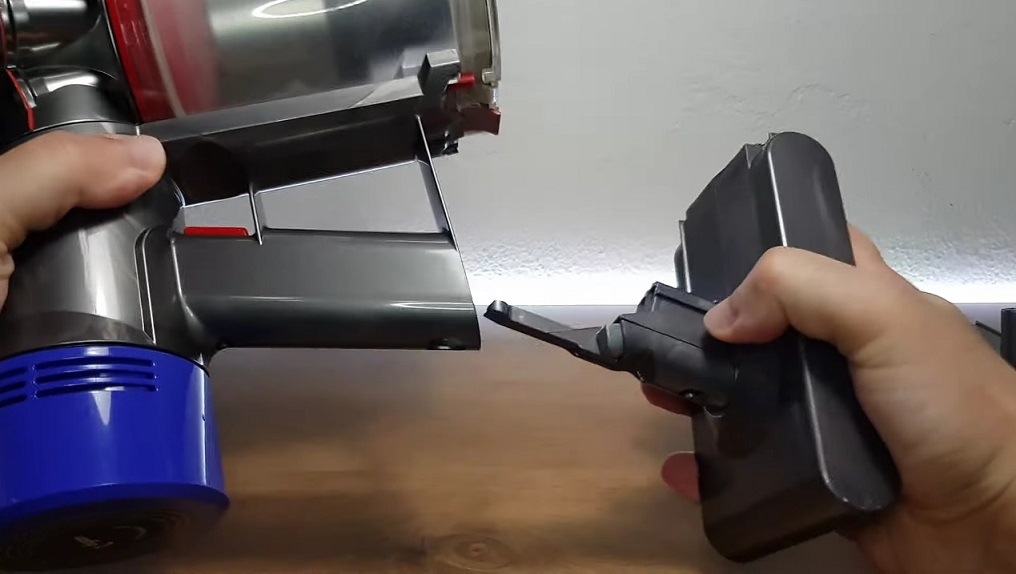
Despite their extended lifespan, a situation may arise where you need to replace your Dyson vacuum’s battery. Dyson provides replacement batteries for their cordless models, enabling you to effortlessly switch out the old battery for a new one. These replacement batteries uphold the same high-performance benchmarks as the original, guaranteeing optimal vacuum functionality.
It is essential to refer to the user manual or contact Dyson customer care for guidance when considering battery replacement. They are able to provide exact information about battery compatibility and any relevant warranty information.
Warranty and Assistance:
Vacuum cleaner and battery warranties are provided by Dyson; these vary based on the model and area. Usually, the guarantee covers both manufacturing flaws and poor workmanship. Should you have any issues with your Dyson battery while it is still under warranty, it is recommended that you contact Dyson customer support for guidance and possible options for repair or replacement.
It’s crucial to remember that the market also offers replacement batteries manufactured by other businesses.You should exercise caution while considering these options because using non-original batteries might compromise the security and functionality of your hoover cleaner as well as void its warranty.
Detecting Battery Replacement Necessity:
When a Dyson vacuum battery nears the end of its life, you might observe these indicators:
- Reduced Runtime: The vacuum operates for shorter periods compared to its previous performance on a single charge.
- Frequent Recharging: The battery necessitates more frequent recharges, even with light usage.
- Power Fluctuations: Suction power might unpredictably waver or weaken during usage.
- Battery Indicator Irregularities: The vacuum’s battery indicator might behave erratically or display inaccurate charge levels.
Common Dyson V8 Battery Challenges:
The Dyson V8 battery pack is widely acknowledged for its effectiveness, yet similar to any rechargeable battery, it can encounter challenges over time. Some prevalent issues linked to Dyson V8 batteries encompass:
- Diminished Suction Power: A deteriorating battery might fail to supply adequate power for optimal suction.
- Unexpected Shutdowns: The vacuum could shut down unexpectedly, signaling a battery concern.
- Brief Runtime: The vacuum discharges swiftly, necessitating frequent recharges.
- Charging Complications: The battery might encounter difficulties during charging or resist retaining a charge.
Factors Influencing Battery Longevity:
The lifespan of a Dyson battery is influenced by various factors:
- Battery Capacity: Batteries with higher capacities generally offer prolonged lifespans compared to lower-capacity alternatives.
- Charge Cycles: Each battery charge and discharge constitutes a cycle, and batteries possess a finite number of cycles before their capacity degrades.
- Usage Patterns: Intensive or sporadic usage both impact battery health; striking a balance is key.
- Environmental Conditions: Extremes in temperature, humidity, and exposure to moisture all affect battery performance.
Typical Lifespan of Most Dyson Vacuum Batteries:
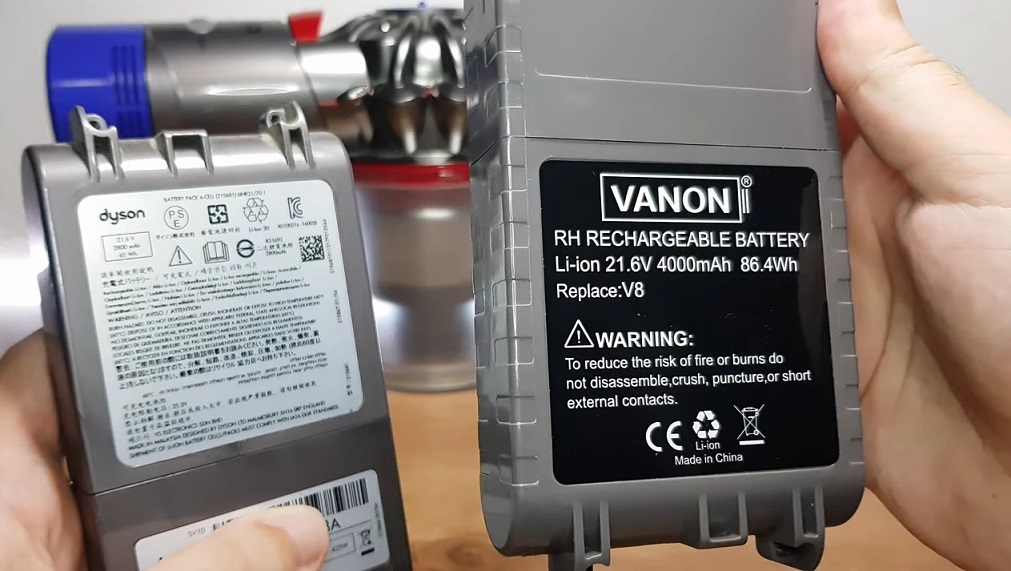
The lifespan of Dyson vacuum batteries can differ based on the particular model and usage tendencies. Typically harnessing lithium-ion batteries, Dyson vacuums are susceptible to gradual degradation over time and usage.
On average, you can anticipate a Dyson vacuum battery to remain effective for approximately 2 to 5 years before notable declines in runtime or efficacy become evident. Here are standard runtime estimates for popular Dyson models:
- Dyson V6 and V8: Roughly 20-40 minutes
- Dyson V10 and V11: Up to 60 minutes
It’s crucial to acknowledge that using attachments and operating the vacuum at maximum power levels can curtail runtime.
Purchasing a New Dyson Battery: Key Considerations:
When the time arrives to replace your Dyson battery, keep these aspects in mind:
- Authentic Batteries: Acquire replacement batteries directly from Dyson or authorized retailers to ensure compatibility and quality.
- Model Compatibility: Confirm the replacement battery aligns with your specific Dyson model.
- Opt for Lithium Batteries: Lithium-ion batteries are preferable due to their superior performance and durability relative to older battery technologies.
- Warranty: Examine the replacement battery’s warranty period for peace of mind.
Strategies To Enhance Battery Performance:
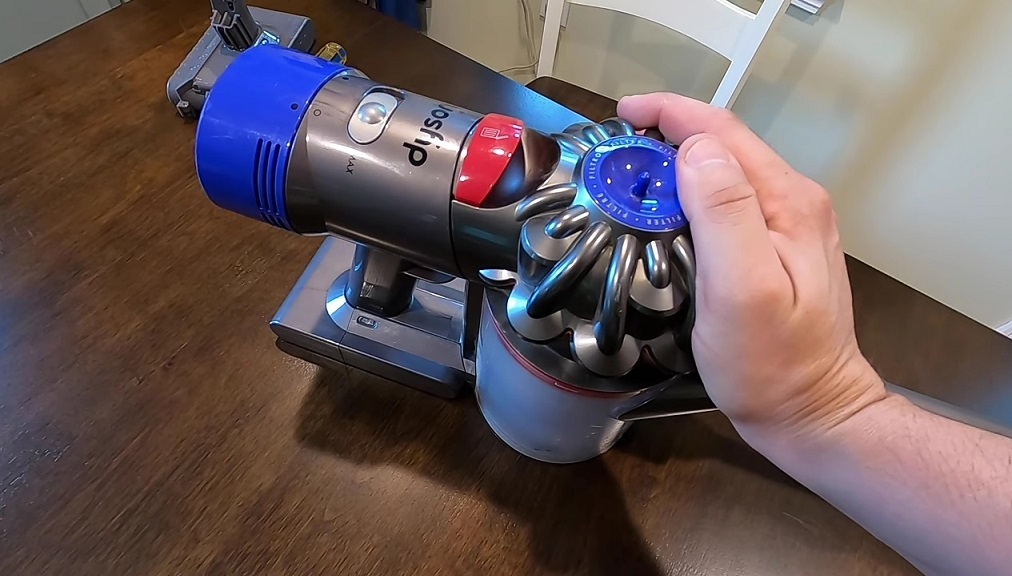
To optimize your Dyson battery’s performance, adhere to these guidelines:
- Complete Charging: Before employing your Dyson device, ensure the battery is fully charged. This maximizes runtime and performance during cleaning sessions.
- Optimal Power Setting: Dyson devices offer various power settings; select the appropriate level for the task to conserve dyson battery life.
- Maintain the Device: Regularly clean the device, including filters, brush rolls, and dust bins. A clean appliance operates more efficiently, reducing strain on the battery.
- Efficient Cleaning Techniques: Develop effective cleaning strategies to reduce time and effort. Covering larger areas per pass and targeting high-traffic zones can minimize cleaning duration and optimize battery use.
- Firmware and Software Updates: Keep your Dyson device current with the latest updates. These often enhance battery performance and overall efficiency.
- Avoid Deep Discharge: It’s advisable to refrain from fully depleting the battery before recharging. Regular recharging within a healthy range is more beneficial for battery health.
Conclusion
In conclusion, a number of factors can affect how long a Dyson battery lasts. If a Dyson battery is properly maintained and cared for, it can last for several years. Battery durability is greatly impacted by temperature exposure, usage habits, charging cycles, and following manufacturer instructions.
By following suggested guidelines, such as proper charging, consistent maintenance, and effective cleaning methods, consumers can extend the lifespan and dependability of Dyson batteries. It’s crucial to understand that batteries naturally deteriorate over time and that replacement may be required at some point.
However, customers can benefit from longer battery life and reliable performance from their Dyson products by following best practices and taking the required safety precautions.

